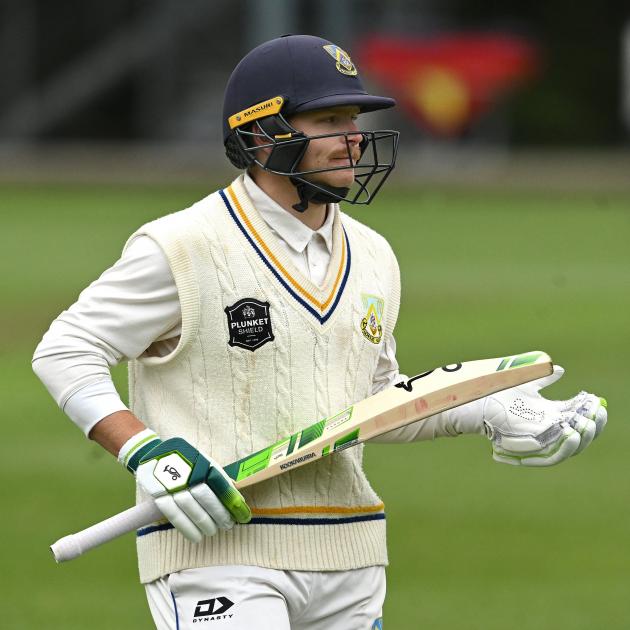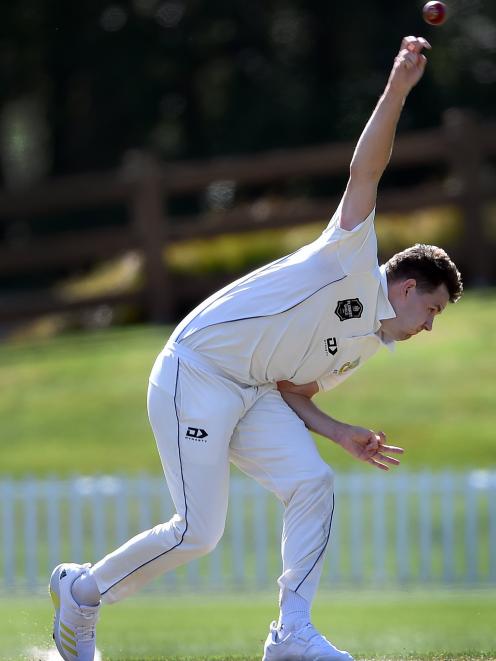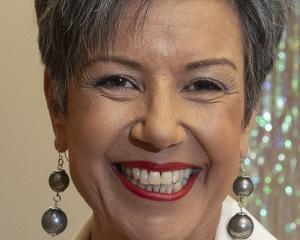
Otago's season will be remembered more for the events off the field than on them.
And the trouble started early.
The two Michaels — Michael Rippon and Michael Rae — signed on with Canterbury during the offseason.
Rippon was irreplaceable. There just are not many left-arm wrist spinners in the game.
Rae’s departure was a major blow as well. He brings tremendous energy with the old ball and the Volts were not able to pick up a frontline seamer in his absence.
Luke Georgeson ultimately proved to be a very handy replacement, and it was the batting, not the bowling, which mostly held the Volts back during the season.
But that early dual loss set the tone.
The Otago Cricket Association tried to gloss over the setback and they also played down the decision not to contract the Sparks’ leading player, Kate Ebrahim.
They refused to comment other than to say she was unavailable for the season.
That decision not to contract Ebrahim created a rift between Otago Sparks coach Craig Cumming and Kate’s husband, Volts coach Dion Ebrahim.
The pair stopped communicating for a period.
Normally you could brush it off as the sort of thing that happens in any organisation. But it created some disquiet that would burst to the surface later in the season when Ebrahim announced his resignation with a year to run on his contract.
Rumours had been building for months he was planning to leave, so it was not a great shock.
What was surprising was how the OCA dealt with the issue. Again, the organisation refused to comment on why Ebrahim was leaving. The coach also declined to be interviewed on the matter.
All it did was create room for speculation and add fuel to the rumours about the disharmony backstage.
While that was percolating in the background, Otago great Ken Rutherford launched a broadside at the OCA accusing it of lacking ambition.
That was palmed off and never really addressed.
Not too long after that, veteran Otago opener Hamish Rutherford — Ken’s son — was nudged into retirement. The events were not connected, but he got the Neil Wagner treatment all the same.

Rutherford was struggling with bad hips and his mobility meant he had become liability in the field. But he still offered plenty with the bat and had given great service to the association during a lengthy career.
In a departing interview with the Otago Daily Times, he indicated there was more to the story.
He did not elaborate, but his suggestion left the impression, once again, all was not so rosy behind the scenes.
All of that would have faded from view had there been some sparkling cricket to focus on. But aside from a four-game winning streak to force their way into the Ford Trophy playoffs, there was precious little distraction.
The Volts had a run of close losses in the Plunket Shield, which you could position as a positive.
They did have chances to win more than the one game they managed to win.
But that also points to a lack of depth in the lineup. They were forced to lean on a small crew who could make things happen.
The T20 campaign was thoroughly disappointing. They won two games and finished fifth.
They also finished fifth in the Plunket Shield and were knocked out in the playoffs of the Ford Trophy.
There were some individual highlights.
Dale Phillips finished the Plunket Shield as the leading scorer. His haul of 686 runs at an average of 49 was boosted by two late centuries.
And Jacob Duffy had another strong season with the red ball. He took 31 wickets at 24.42. Only Wellington all-rounder and former Otago team-mate Nathan Smith (33 at 17.18) took more wickets.
Georgeson proved to be an inspired signing.
February was a wonderful month for the all-rounder. He took two five-wicket bags and scored a century during Otago’s charge into the playoffs.
He also picked up a maiden first-class five-wicket bag in the win over Canterbury at Molyneux Park early last month.
It was a breakthrough season for the 24-year-old, who arrived in Dunedin with a modest record but emerged as a proper threat with the ball.
While Georgeson’s form was a surprise, Otago captain Dean Foxcroft struggled to make the impact many thought he would have.
His fielding was poor at times. He puts down a lot of catches. But it was his lack of consistency with the bat that hurt the Volts the most.
They would have gone into all three campaigns expecting Foxcroft to dominate, but he did not.
It was a big year personally for Foxcroft. He became a father and was handed the captaincy reins. He had a lot on his plate.
And so will Otago’s new coach.
Assistant Ben McCord has confirmed he will apply for the role, and Sparks coach Cumming will be a strong candidate if he decides that is what he wants to do.
They are both people-focused, process-driven coaches. But professional sportspeople are judged by their results.
Otago have not won the first-class competition since 1987-88. It has been 16 years since the last one-day banner, and the Volts last won the T20 competition in January 2013.












